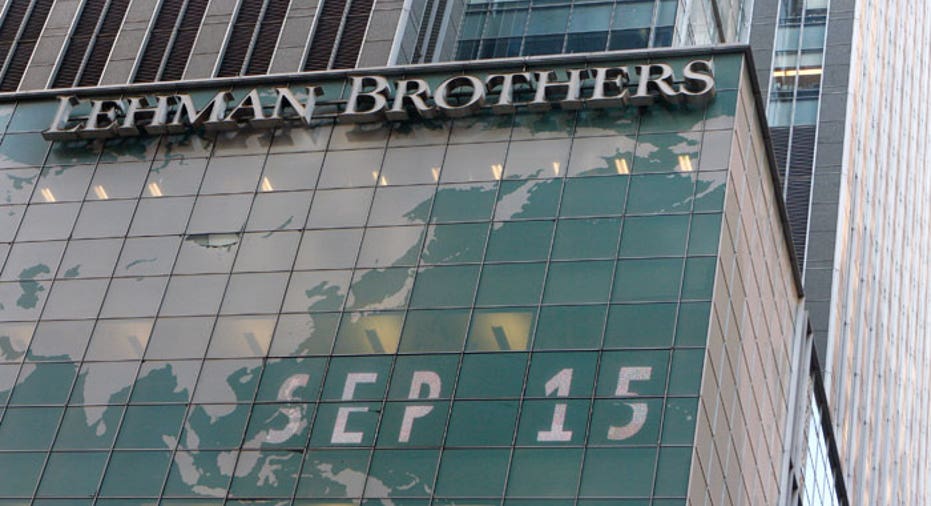Battle Scars May Help Explain Risk Averse Corporate America

The U.S. economic recovery continues to be constrained by companies’ reluctance to shell out the record $1.3 trillion of cash sitting idly on the sidelines.
But why do some companies like Google (NASDAQ:GOOG) seem more willing to invest that cash through hiring and R&D than others?
New research is helping unravel that mystery, showing some executives may be overly cautious due to battle scars inflicted during previous jobs.
A study from the Universities of Michigan and Washington found that cash-to-asset ratios were 3.2 to 5.4 percentage points higher for non-financial companies run by CEOs who were previously employed by a firm that experienced financial difficulties.
"These findings collectively support the view that professional experience of financial difficulties pushes managers to be overly conservative and save too much," professors Amy Dittmar and Ran Duchin wrote in the paper, which was released this month.
While rooted in previous bad experiences, that risk-averse mentality could be hurting future returns for shareholders and hindering a broader economy grappling with 7.6% unemployment.
Mountains of Idle Cash
There’s no question that C-Suites have been stockpiling cash for a rainy day ever since the economy began showing signs of trouble in 2007. Given the cash crunches that sparked the bankruptcies of General Motors (NYSE:GM) and many other icons, that strategy makes sense.
Still, corporations have been unwilling to deploy that safe-haven cash even now that the economy has shown signs of life nearly five years after the Great Recession began. Executives frequently point to uncertainty over growth, fiscal policy and unfavorable tax laws.
According to the paper, U.S. firms held $234.6 billion (in 2011 dollars) in cash as of 1980, representing 12% of assets. By 2011, that cashload surged to $1.5 trillion, or 22% of assets.
Cash and short-term investment balances for S&P 500 non-financial companies stood at $1.27 trillion at the end of 2012, up 6.1% year-over-year, according to FactSet (NYSE:FDS).
"Firms are holding unprecedented levels of cash that are difficult to explain using the standard firm-level determinants of cash savings," Dittmar and Duchin wrote.
Bad Memories Loom Large
After sifting through employment data on 8,500 CEOs, the authors found that managers who previously worked at firms that experienced financial difficulties acted far more cautiously than ones who didn’t.
This builds on previous research that demonstrated managers who grew up during the Great Depression were disinclined to add debt and those who served in the military were more apt to lever up.
"Given managers have lived through the Great Recession, it is reasonable to think that this experience will impact their actions in the future via being more conservative when it comes to both investment spending and hiring," said Campbell Harvey, a Duke University professor whose own research found that a highly risk averse CEO is not likely to have high leverage.
The latest paper defined financially-distressed companies in a number of ways, including through low bond ratings and the presence of shocks to cash flows and stock prices that limited the ability to tap external financing.
In the year following CEO turnovers, CEOs with experience at troubled firms boost cash-to-assets ratios by 2.4 to 5.5 percentage points, the authors found.
Likewise, companies led by CEOs with experience at financially-stressed companies have a savings ratio (cash and short-term investments divided by assets) that is 3.2 to 5.4 percentage points higher than ones who didn’t have that same prior work experience.
Moreover, the paper found that net debt ratios (total debt less cash divided by assets) are 1.8 percentage points lower at firms whose managers experienced financial difficulties.
Too Cautious?
While some would argue the cash hoarding is prudent, the research found that it is often a poor use of the funds, which could be better deployed to invest in future growth instead.
Dittmar and Duchin said the negative professional experience implies a reduction of 10.6 to 16.3 cents in the value of an added dollar of savings. In other words, adding $1 in cash to the balance sheet only translated to a gain of 83.7 to 89.4 cents in market value, instead of the whole $1.
Interestingly, these trends were felt more strongly in "poorly-governed firms" than well-run ones, the paper said.
"If these CEOs overestimate the likelihood and adverse implications of financial distress, or become overly risk-averse, they are likely to save more than is needed," Dittmar and Duchin wrote.
On the other hand, the authors acknowledged that if normal CEOs underestimate risk, these risk-averse CEOs may push risk policies "closer to their optimum."
Sobering Consequences
David Einhorn knows all about managers’ reluctance to spend or return cash. Earlier this year, the hedge-fund billionaire successfully persuaded Apple (NASDAQ:AAPL), which listed $144.69 billion in cash and long-term marketable securities as of March 20, to ramp up its share buyback program to $60 billion from $10 billion.
It’s easy to see how financially-scarred CEOs may be helping to hold the U.S. back from escaping its slow-growth trajectory.
Even as corporate executives grow more bullish on the U.S. economy, reluctance to spend cash sitting on balance sheets remains.
Just 17% of U.S.-based CFOs say they are likely to substantially boost real spending and investment -- the least of any country surveyed in a poll released on Thursday by American Express (NYSE:AXP) and CFO Research. By comparison, 75% of CFOs in Argentina and India and 71% of CFOs in Brazil and China said they planned to ramp up spending and investment.
Despite a significant increase in economic optimism, CFOs said their companies plan to boost capital spending by just 6.1% over the next 12 months, up just slightly from projections for 5.3% in the first quarter, according to a separate survey of CFOs released this week by Duke University and CFO Magazine.
"If overly conservative managers accumulate enormous cash balances at the expense of undertaking positive net present value investments, they might be hurting economic growth and job creation," Dittmar and Duchin wrote.



















